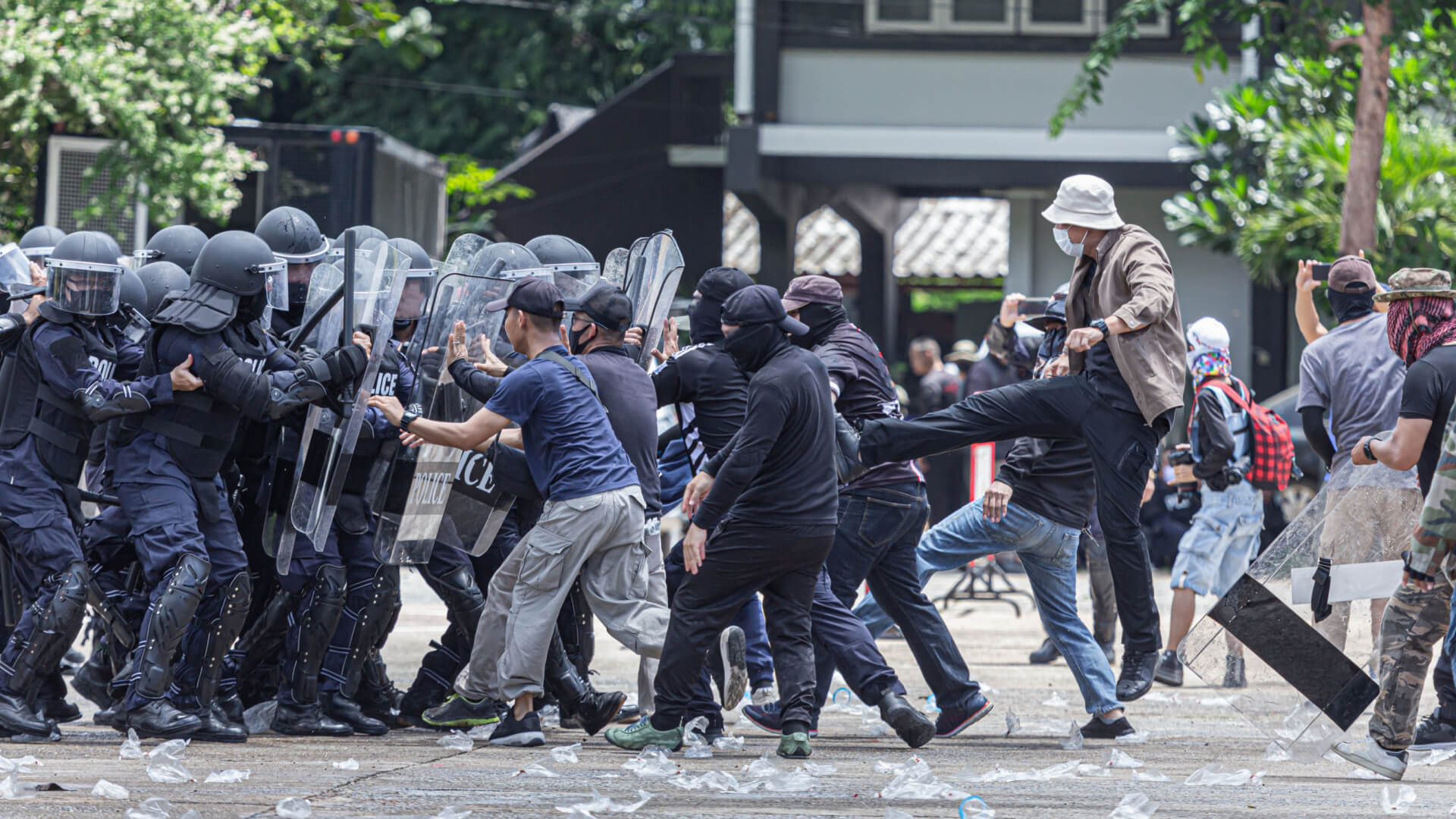
Protesting is a foundational right of the American people, but a protest has limits. If a group loses control of their protest, it can become a riot, and there is no right to riot under U.S. law. If your protest evolves into a riot, you can be brought up on rioting charges for appearing in the protest, even if you did not partake in the riot. If you are met with rioting charges, you need to contact our criminal defense attorneys.

How Does a Protestor Become a Rioter?
It’s important to understand that while peaceful protests are a constitutionally protected right in the United States, situations can escalate quickly and result in charges of rioting. A well-intentioned individual, intending to participate in a peaceful protest, may find themselves implicated in a riot if the protestors’ actions spiral into violence, disorder, and destruction of public property.
Our riot attorneys can help people who have been unexpectedly caught in the midst of a chaotic event and are now facing rioting charges. Understanding the legal definition and implications of rioting is crucial to protecting your rights in this situation.

Legal Definition of Rioting
Rioting is defined as a public disturbance involving an act or threat of violence by a group of individuals. This can include actions such as:
- Damaging property
- Looting
- Physically attacking others
- Resisting arrest

What Constitutes as Rioting?
In general, several key elements must be present for an act to be considered rioting:
- The disturbance must involve three or more individuals
- The actions of those involved must be violent or threatening
- The disturbance must take place in a public setting
If any of these are missing, it becomes a different kind of criminal activity. Additionally, some jurisdictions also require that the individuals involved have a shared intention to cause harm or damage.

What is the Difference Between Rioting and Protesting?
Rioting and protesting are two distinct activities that are often confused. The confusion may be due to the fact that protests can become riots, but a riot can occur without a protest happening first. Legally speaking, they have different definitions.
A protest is defined as a public demonstration that is meant to express a group’s objection or disapproval towards an idea or course of action. It’s a constitutionally protected right in the United States under the First Amendment. This amendment guarantees all Americans the right to freedom of speech and assembly.
The easiest way to tell the difference between the two is the presence of violence and harm to people or property. While protests can sometimes turn into riots, not all protests are riots, and the two should not be conflated.

The Legal Consequences of Rioting Charges
Rioting charges can result in fines and imprisonment. In some cases, those charged with rioting may also face additional charges such as assault or destruction of property. These charges can carry even harsher penalties depending on the severity of the destruction caused by the riot.
Contact the Riot Attorneys at Lermitte & Lubin, LLC For Help
You should not be punished for utilizing your civil rights or for the actions of others. If you have received rioting charges after appearing in a protest that went wrong, you need legal representation immediately. The riot attorneys at Lermitte & Lubin, LLC can help, so contact us as soon as possible.
How To Find Us
Hours
24/7
Get In Touch
We aim to promptly address your message. While we maintain strict confidentiality, it's important to understand that reaching out to us does not establish an attorney-client relationship.
"*" indicates required fields

